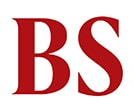Page 5 - Emerging Markets
Delta variant of Covid creates emerging market gap as outperformers hit
Countries that are lagging in vaccination rates may feel the pressure as they tighten restrictions that will hurt economic activity, according to Credit Agricole CIB
Indian hedge funds beat Asian, EM peers; provide 6.6% returns in May
Provide 6.6% returns in May; rebound comes after retreat in April as 2nd wave took hold
MSCI warns India, four other emerging markets against restrictive policies
Says could lead to a downgrade in market classification
MSCI India crosses 55% premium over emerging markets peers: Report
We expect the valuation premium to remain at elevated levels, as it offers one of the fastest growth in the region, Credit Suisse Wealth Management India said
Higher flows and rich valuations push cash levels of mutual funds
51% equity schemes have witnessed non-equity holdings rising in the past year
India Inc earns 72% of revenue from the domestic market: Morgan Stanley
On an aggregate basis, 72 per cent of EM companies' revenues come from their home country
Fed tapering and emerging markets
The year 2021 will be one of the strongest years for global growth in history
India-dedicated funds see $5-billion outflows in one year, shows data
GEM funds are the prime drivers of flows into emerging markets as they have assets under management of $123 billion
India is first pick among Asia emerging markets for Morgan Stanley
The earnings momentum has been quite resilient and the policy momentum quite focused towards improving the infrastructure and attractiveness in the global supply chain: Daniel Blake of Morgan Stanley
US-listed Emerging Markets ETFs see 26th straight week of inflows
Total inflow was $341.7 million for the week ended April 30, up from $81.1 million in the previous week
Commodity rally sparks jump in emerging-market currencies, credit
Many investors expect more gains as the world pulls out of the pandemic
India, emerging markets lag US in first 100 days of Joe Biden as president
Strong economic growth in the US coupled with aggressive stimulus measures and rapid vaccination has propelled the world's biggest market
India-dedicated funds see inflows of $192 mn in March, AUM up 5.7%
Global emerging market funds saw inflows of $1.52 billion, taking the CY21 inflows of such funds to about $3.62 billion
Covid vaccine shortage holds emerging markets back from global rally
Some investors are looking past the latest surge in cases, betting that vaccines will proliferate in the developing world.
The big, easy 'buy' story in Asia over; remain underweight on India: HSBC
HSBC has raised their 2021 global and EM gross domestic product (GDP) forecasts to 5.6 per cent (from 4.8 per cent) and 6.6 per cent (6.1 per cent), respectively
India fiscal health weak for quantitative easing, says Moody's
India is among the 11 emerging markets (EMs) that have jumped on the QE bandwagon
Developed markets outperformed emerging markets in March, shows data
The 10-year US Treasury yield has moved from 1.2 per cent to 1.7 per cent in just six weeks.
Avoiding a K-shaped global recovery
Political leaders in the developed world must recognise that no one is safe until everyone is safe, and that a healthy global economy is not possible without a strong recovery everywhere
India's public finances and private sector at taper tantrum risk
India is the third most indebted country among major emerging markets, behind Argentina and Brazil.
Emerging Asia's recovery can withstand reflation trade: S&P Global Ratings
The reflation trade that is lifting US yields will not hit Asian emerging markets' financial conditions and growth outlook as much as during the taper tantrum of 2013, S & P Global Ratings said on Wednesday."The recovery across Asia's emerging economies should withstand rising US yields so long as this reflects an improving growth outlook and reflation rather than a monetary shock," said Shaun Roache, Asia Pacific Chief Economist at S & P.In 2013, US yields leaped after the Federal Reserve indicated it will begin unwinding its quantitative easing programme. The resulting panic over rising credit costs led to sharp outflow from emerging markets, including Asia's, and forced central banks to hike interest rates."Not all yield shocks are created equal," said Roache.The report highlighted three important factors that determine vulnerability to external shocks in Asia and which are relevant today.One: the nature of the shock. Yields can rise for more than one reason. Some are more .
